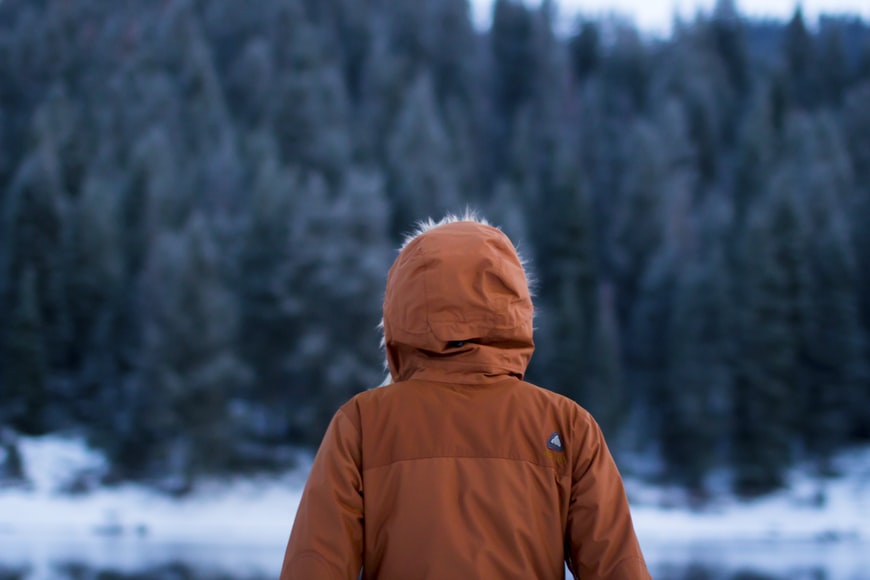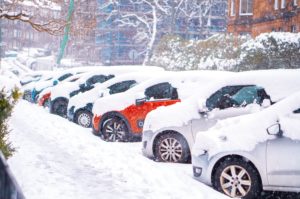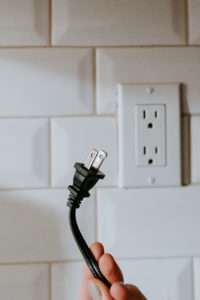
05 Nov Winter Safety Tips
With the cold winter season fast approaching, the Centers for Disease Control and Prevention released a set of guidelines to help keep everyone safe during the cooler months. Preparing your home and vehicle and preventing frostbite and hypothermia is key to a healthy season, according to the CDC.
Here’s a list of suggestions and preventative measures to take into consideration:
Preparing Your Home
Although staying indoors can protect you from the elements, it’s not always guaranteed. As we all know, issues can arise at any given time – but are especially prone to do so when frigid temps take hold.
Although Upper Peninsula residents are used to extreme weather conditions, sometimes issues occur in a household when proper preventative measures aren’t taken.
The CDC suggests the following:
- Winterize your home.
- Install weather stripping, insulation, and storm windows.
- Insulate water lines that run along exterior walls.
- Clean out gutters and repair roof leaks.
- Check your heating systems.
- Have your heating system serviced professionally to make sure that it is clean, working properly, and ventilated to the outside.
- Inspect and clean fireplaces and chimneys.
- Have a safe alternate heating source and alternate fuels available.
- If you do not have a working smoke detector, install one. Test batteries monthly and replace them twice a year.
- Prevent carbon monoxide (CO) poisoning emergencies.
- Install a CO detector to alert you of the presence of the deadly, odorless, colorless gas. Check or change the battery when you change your clocks in the fall and spring.
- Learn the symptoms of CO poisoning: headache, dizziness, weakness, upset stomach, vomiting, chest pain, and confusion.
Prepare Your Vehicle
No one wants to be stranded alongside the road during a snowstorm. Not only is it an annoyance, it’s also extremely dangerous.
According to the CDC, here are some tips to prepare your vehicle for the longest season of the year:
- Service the radiator and maintain antifreeze level.
- Check your tires’ tread or, if necessary, replace tires with all-weather or snow tires.
- Keep the gas tank full to avoid ice in the tank and fuel lines.
- Use a wintertime formula in your windshield washer.
- Prepare a winter emergency kit to keep in your car in case you become stranded. The kit should include:
- Cell phone, portable charger, and extra batteries;
- Items to stay warm, such as extra hats, coats, mittens, blankets, or sleeping bags;
- Food and water;
- Booster cables, flares, tire pump, and a bag of sand or cat litter (for traction);
- Compass and maps;
- Flashlight, battery-powered radio, and extra batteries;
- First-aid kit; and
- Plastic bags (for sanitation).
How to Prepare for Emergencies like Power Outages
Although there’s never a convenient time for an emergency, it always helps when you’re more prepared to handle one.
The CDC suggests households do the following:
- Stock food that needs no cooking or refrigeration and water stored in clean containers.
- Ensure that your cell phone is fully charged.
- When planning travel, be aware of current and forecast weather conditions.
- Keep an up-to-date emergency kit, including:
- Battery-operated devices, such as a flashlight, a National Oceanic and Atmospheric Administration (NOAA) Weather Radio, and lamps;
- Extra batteries;
- First-aid kit and extra medicine;
- Baby items; and
- Cat litter or sand for icy walkways.
- Protect your family from carbon monoxide (CO).
- Keep grills, camp stoves, and generators out of the house, basement and garage.
- Locate generators at least 20 feet from the house.
- Leave your home immediately if the CO detector sounds and call 911.
Travel Smart
While this is good advice year-round, it’s especially important to be aware of current and forecast weather conditions before you travel in the winter.
- Avoid traveling when the National Weather Service has issued advisories.
- If you must travel, inform a friend or relative of your proposed route and expected time of arrival.
- Follow these safety rules if you become stranded in your vehicle.
- Make your vehicle visible to rescuers. Tie a brightly colored cloth to the antenna, raise the hood (if it is not snowing), and turn on the inside overhead lights (when your engine is running).
- Move anything you need from the trunk into the passenger area. Stay with your vehicle unless safety is no more than 100 yards away.
- Keep your body warm. Wrap your entire body, including your head, in extra clothing, blankets, or newspapers. Huddle with other people if you can.
- Stay awake and stay moving. You will be less vulnerable to cold-related health problems. As you sit, keep moving your arms and legs to improve circulation and stay warmer.
- Run the motor (and heater) for about 10 minutes per hour, opening one window slightly to let in air. Make sure that snow is not blocking the exhaust pipe—this will reduce the risk of carbon monoxide (CO) poisoning.
Other Important Things to Keep in Mind
It’s not uncommon for winter temps to reach dangerous levels in Alger County. Throw in some lake effect snow along with the wind and it can make for an uncomfortable experience, especially when you’re not dressed appropriately.
This winter, please keep the following in mind:
- Avoid frostbite and hypothermia by wearing appropriate outdoor clothing: wear a tightly woven, preferably wind-resistant coat or jacket; inner layers of light, warm clothing; mittens; hats; scarves; and waterproof boots.
- Sprinkle cat litter or sand on icy patches.
- Learn safety precautions to follow when outdoors.
- Work slowly when doing outside chores.
- Take a buddy and an emergency kit when you are participating in outdoor recreation.
- Carry a cell phone.
- Check on family and neighbors who are especially at risk from cold weather hazards: young children, older adults, and the chronically ill.
- If you have pets, keep them inside when it’s cold.
Please note: If you or someone you know is experiencing symptoms of frostbite or hypothermia, seek medical attention immediately. Munising Memorial Hospital has an emergency department that is open 24/7 and is located at 1500 Sand Point Rd, Munising. Phone number for the hospital is (906) 387-4110.










Sorry, the comment form is closed at this time.